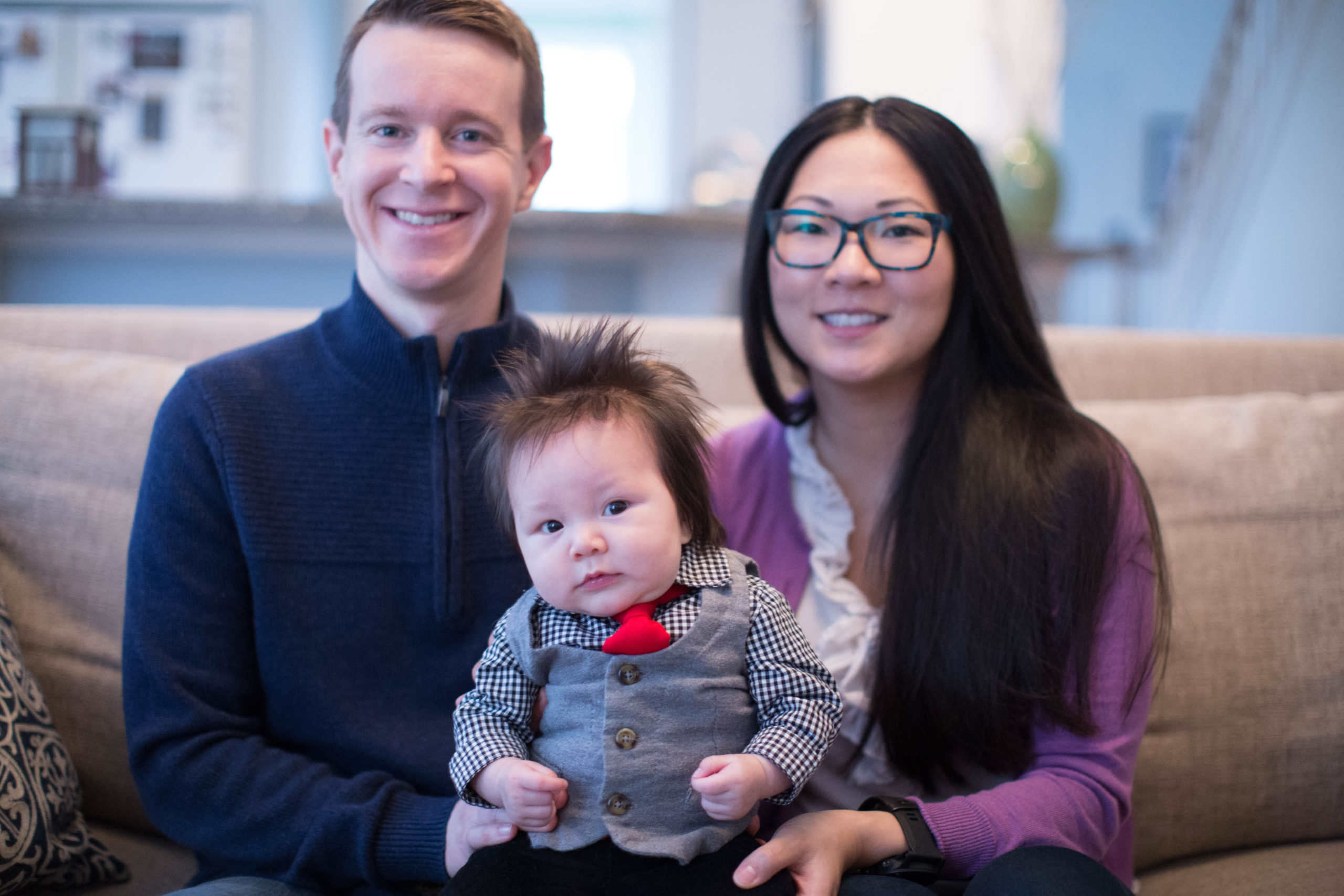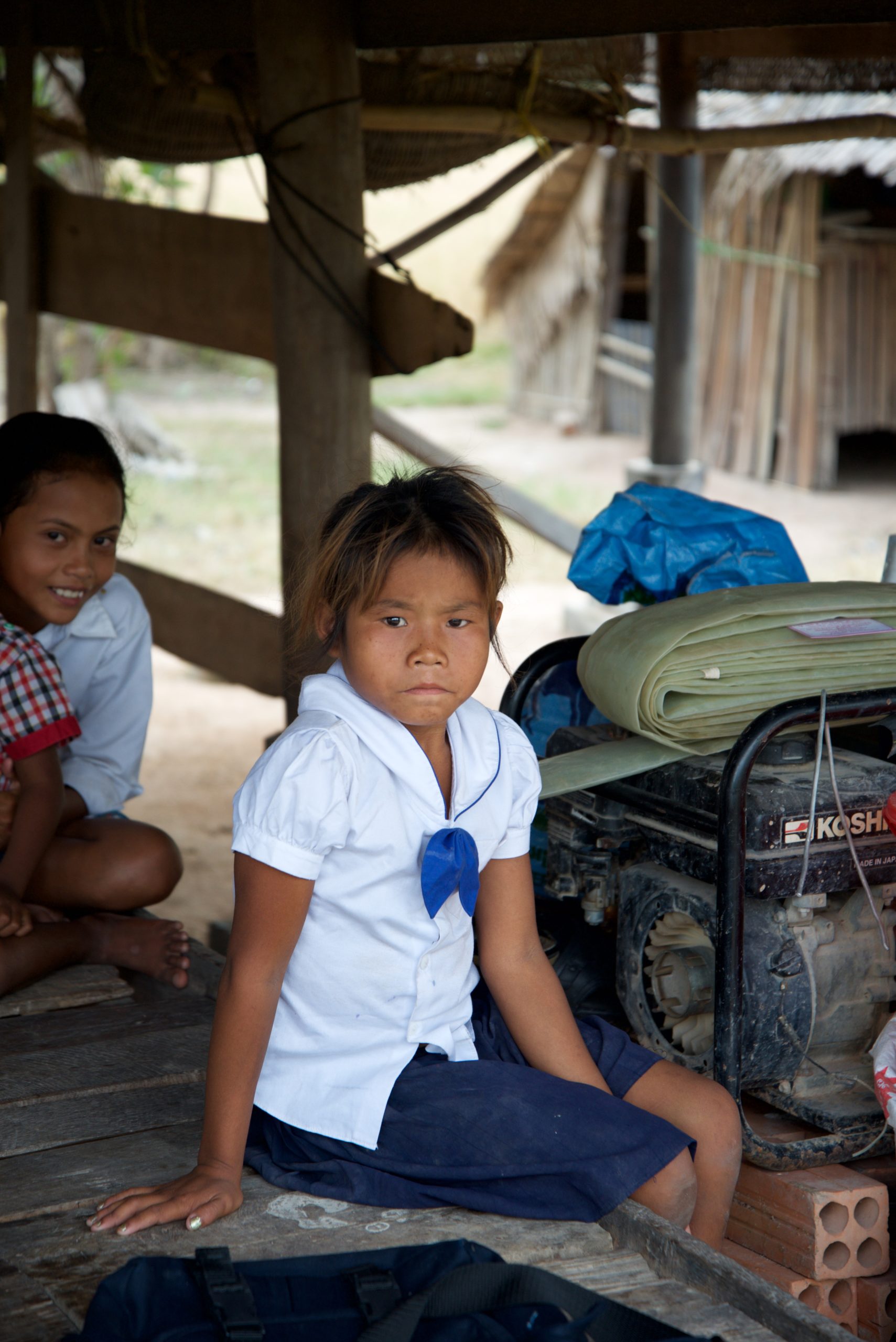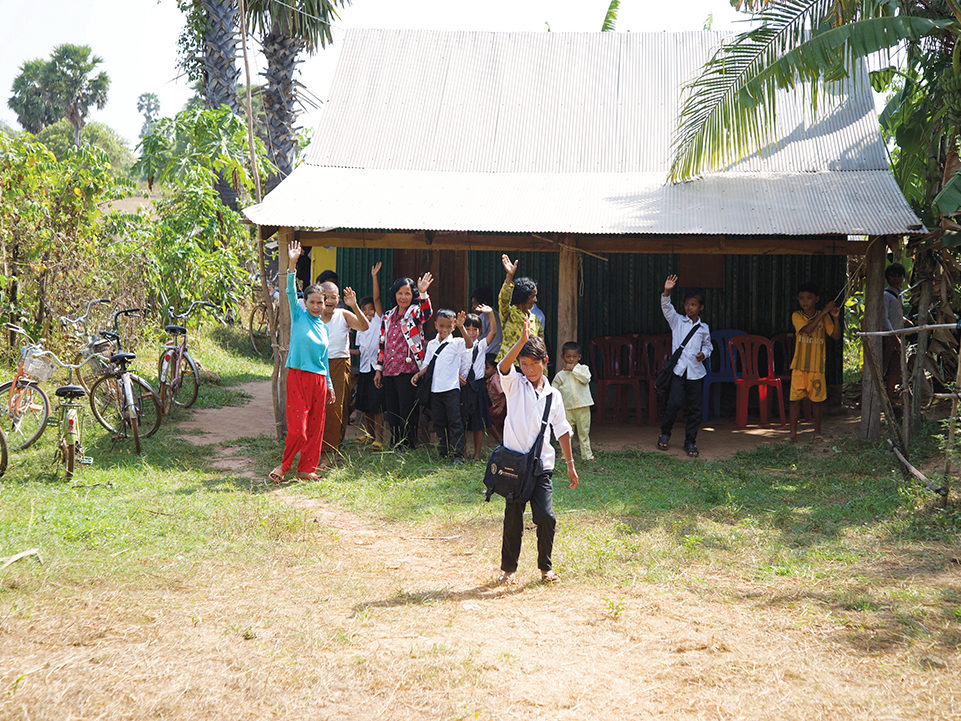Widowed at 38, and supporting six children, Sao Yien struggled to make ends meet. But when she received a Gift of Hope to build a small business, she realized how strong and independent she truly could be.
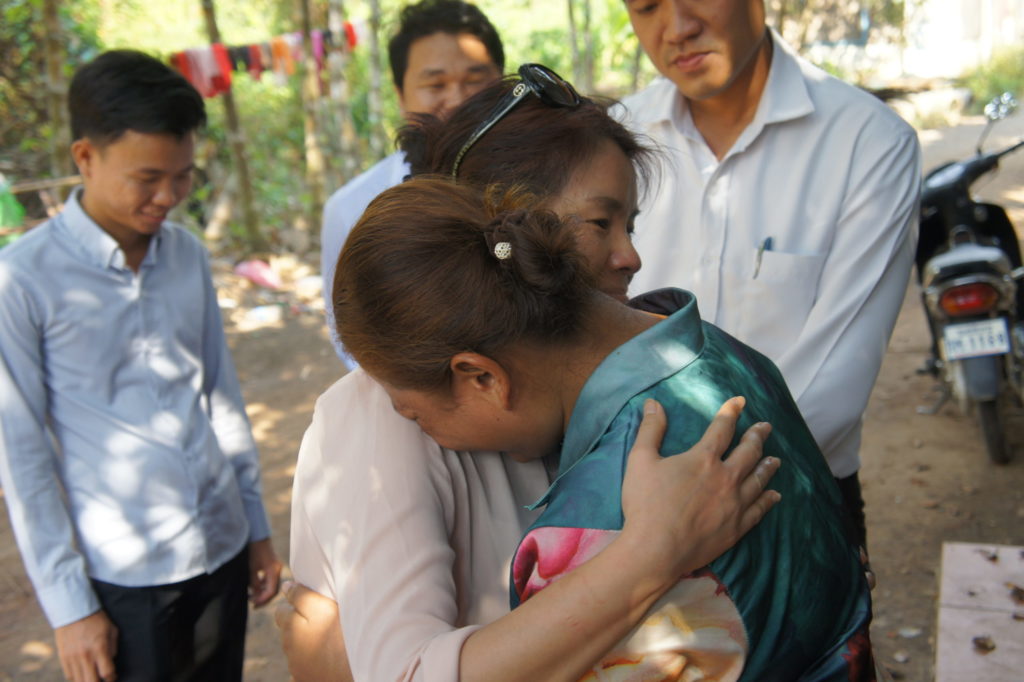
When Sao Yien said goodbye to Thoa, she buried her head in Thoa’s shoulder and cried. She didn’t say anything. She just cried. And so did Thoa.
Thoa Bui is Holt’s vice president of programs and services. Sao Yien is a woman in our family strengthening program in Battambang, Cambodia. A widow, Sao is the sole support for seven members of her family, including her own child, her sister’s five children and her 90-year-old grandmother. Until two years ago, when Holt’s social work team in Cambodia began working with Sao, she and her family were living in extreme poverty.
“At that moment before we parted,” Thoa says, “she was crying — and I was crying too to be honest — and I said I have a lot of feelings because I totally understand what you have gone through, and I understand the burden of responsibility that you continue to carry for these children and your family.”
When Thoa visited Sao at her home in Cambodia, she felt emotional seeing the change in Sao’s family. But her connection with Sao extends beyond basic human compassion. It extends beyond the understanding she has developed over a 16-year career devoted to empowering women like Sao to care for their children and families. Her connection is personal.
“I remember growing up — we often compare my generation — the parents did not have enough time to pay individual attention to education,” Thoa says of her childhood in Vietnam, after the war. “Here is the food, seven kids, here is the rice. The parents have to be out every day, working. No one has the time to even think of education even though it is highly encouraged and valued.”
Like many families at the time, Thoa’s family experienced the poverty of a nation devastated by war. They lived on food and basic necessities rationed by the government. Gradually, as the economy recovered, her family overcome their hardships and Thoa went on to become a Fulbright scholar. But she has never forgotten what it’s like to not have what her family needed.
____
Two years ago, on a grant from the GHR Foundation, Holt Cambodia began working in Battambang, the rural province of Cambodia where Sao and her family live. Here, the depth of need is among the most serious Thoa says she has ever seen. Chronic drought has created a dust bowl in this community. Dead fields of rice spread for miles and miles. Children often fall ill from drinking dirty water, and an overall lack of sanitation is a serious health threat. Many children are out of school because their parents can’t afford supplies and uniforms, or the school is too far to walk and they don’t have a bicycle to ensure safe passage; in rural areas of Cambodia, gang members will often stop kids on their way to school to rob them of whatever they have. The danger of child trafficking is also incredibly high.
But in this rural community plagued by drought, in many cases, a family’s most urgent need cannot get any more basic.
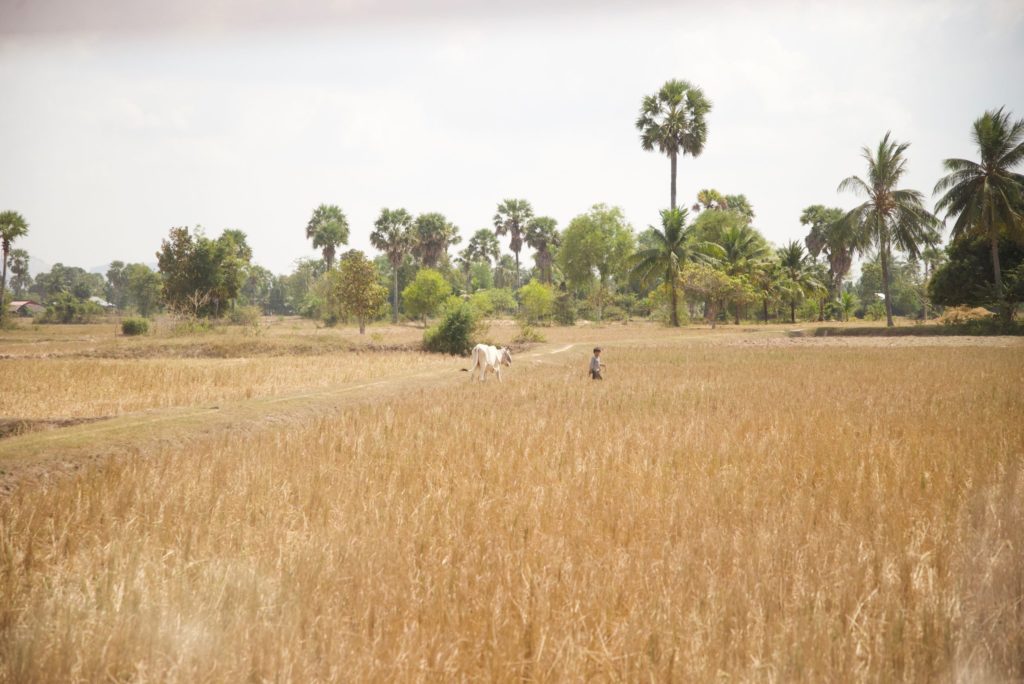
“It’s very heartbreaking to see a lot of kids – and this is something I don’t see in other countries – they only have two meals a day,” Thoa says. “They don’t have three meals a day because their parents can’t afford to feed them enough.”
When Holt staff in Cambodia first visited Sao and her family in winter 2016, the children all showed signs of malnutrition. She struggled to feed them on the income she earned from washing clothes. On a good day, she could earn as much as $2.50. But Sao has a disabled leg, which slowed her down and made it hard for her to earn more than $1 most days. In Cambodia, the poverty line cuts off at $1 per day per person. With seven members in her family, Sao would need to earn $7 per day to meet the most fundamental needs of her family — food, water, shelter, clothing.
In and out of school, the children had all fallen behind grade level. Hunger had erased all other thoughts, ambitions, desires.
“You think they will even have the attention to get an education? No,” Thoa says. “They have to think about how to get food into the belly first.”
With Sao and her family in crisis, our staff in Cambodia immediately drew upon reserves from our generous donors to provide emergency food rations, including salt, oil, eggs and 50 lbs of rice. Next, our team worked with Sao, the children’s teachers and the school director to set up a support network for the children. Together, they worked to help keep every child in school and performing to their potential.
In Battambang, as in every community where Holt works, partnership with local schools is absolutely vital. As Thoa says, teachers know everything.
“The teachers see the children every day. No one knows better than them what’s happening with the children, especially in the villages,” she says. “So we collaborate with them.”
Through training with Holt Cambodia, teachers learn to recognize signs that a child is facing challenges at home — whether signs of abuse, or just poor concentration due to hunger. Holt Cambodia also holds trainings with local religious and community leaders to increase awareness of the children’s rights, the importance of education and what to do when they discover abuse. As the local social workers build trust, teachers begin to refer children to Holt Cambodia for help and support.
When social workers meet with families, they first work to address any immediate needs. They provide food and school supplies. They help re-enroll children in school. They address any urgent medical needs the children or parents have.
But once they have addressed the fundamental needs of a family, social workers begin working with them to develop a long-term strategy for supporting their children.
With Sao’s children in school and food on the table, our social workers in the field shifted their focus to this long-term strategy. Here in Battambang, as everywhere Holt has family strengthening programs, our on-the-ground staff strives to provide the tools and resources families like Sao’s need to grow strong and self-reliant. Our goal is to lift up parents like Sao — to help them overcome the obstacles they face, and empower them to independently provide everything their children need to grow and thrive.
When local social workers met with Sao, they learned that she had once worked in a garment factory and knew how to sew. She had skills needed to earn a regular income for her family, but lacked the basic resources to start a business. Unable to feed her family, how could she ever save enough to buy a sewing machine, fabric, thread and other basic supplies? Loans available in her community are often predatory — set at an interest rate she could never repay. And she had little time to think about anything but caring for the immediate needs of her family.
But when our social workers learned that Sao could sew, they saw her potential. Our staff knew she would be the perfect recipient for a Gift of Hope that a generous donor had already purchased for a yet-to-be identified family. The gift of a sewing machine.
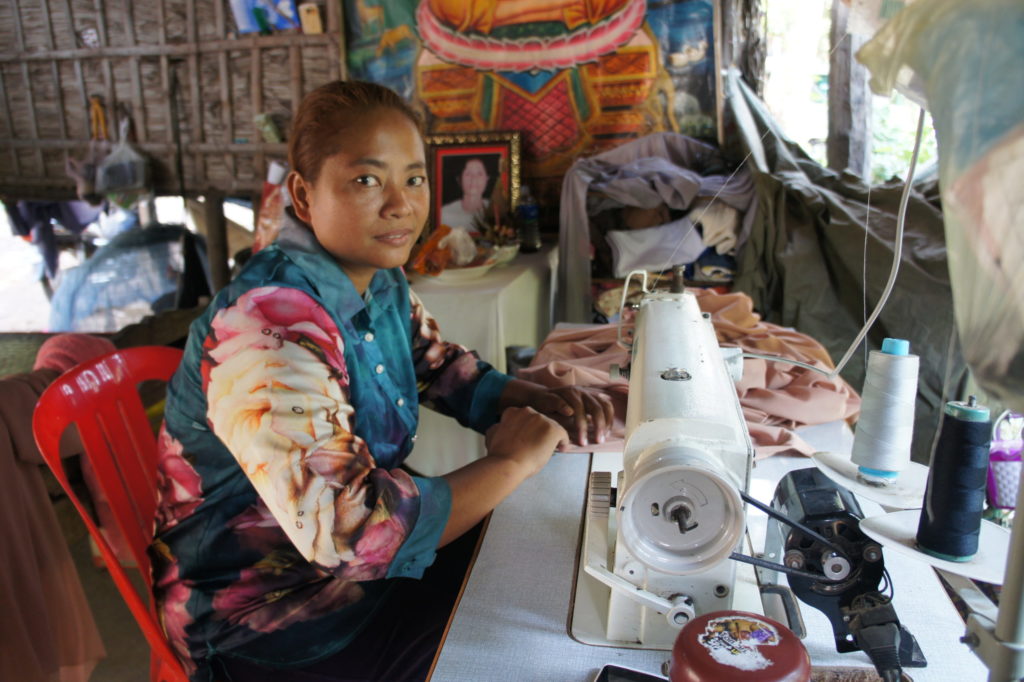
A sewing machine is always a great tool to help a family generate income. But in Cambodia, its is an especially valuable Gift of Hope.
As Thoa explains, “Cambodia is a country where labor is still so cheap so a lot of giant clothing companies have factories utilizing this cheap labor for their manufacturing.”
In a country with such limited job opportunities, many people — women especially — find work in these garment factories, most of which are located in Phnom Penh or other large cities. And when parents migrate from rural areas, they leave children in the care of relatives — often out of contact for months at a time.
“[It’s very common] for the mother to go to Phnomh Penh or to Bangkok to earn a living because that’s the only way to have some income in the family,” Thoa says. “If she doesn’t leave the family, probably they are all starving.”
But once they have the skills and supplies they need, women like Sao can set up their own small business. They can design and sew clothing or other products and sell them right in their own community. Or they can secure contracts with garment factories — selling clothing for more than they would earn working as a factory employee. All they need is the equipment.
For $122 — the cost of a sewing machine — one donor can empower a mom like Sao to provide for her family, without ever leaving home.
When Thoa and a team of Holt leadership traveled to Cambodia in winter 2018, they saw just how much this one Gift of Hope had impacted Sao and her family.
After receiving both a sewing machine and a thread serger, Sao contributed some of her own money to set up an electrical connection to her house — providing the foundation to start her business. Today, she makes hammocks on contract with two local shops and also sews children’s underwear, which she sells at the local market. Her daily income has increased from $1 to $2.50 per day to $6 to $7.50 per day, which is sufficient to meet her family’s needs.
“I think she’s a very inspirational woman considering her very humble background and the extreme challenges she has,” Thoa says of Sao. “You know, she has a disability, and being a woman with very limited resources — very nearly zero. She has a huge burden of responsibility on her shoulders. I have a lot of empathy for her. But she has made huge strides.”
As for the five children in her care, the change in their health is visible. They are no longer malnourished and have caught up to grade level in school. Sao still works extremely hard to support her family. But seeing how far Sao has already come, Thoa has confidence that she will continue growing her business and improving the living conditions of her family.
“Because the business is quite new, we believe if she keeps doing what she’s doing and she’s doing a good job, she will have more customers,” Thoa says. “Her name will be known, and it’s expected she will be able to do more and earn more.”
Through her tears, Sao conveyed the gratitude she feels for the help she has received. But, Thoa says, she is particularly grateful for her Gift of Hope.
“It’s so valuable to her, the sewing machine,” Thoa says. “This is a huge opportunity, like life and death. [She is] going to do whatever it takes to protect that asset and grow the business for her family.”
____
Before saying goodbye to Sao, Thoa had something to say to this woman who moved to her tears.
“[I said] the only thing I wish for you is to have good health and your business is flourishing so it can help you continue to care for your children and your family,” Thoa remembers. “She was crying. I was crying too because I really don’t know how she makes it … Even though she has been very successful compared to where she started, it will continue to be a big responsibility.”
With the support she’s received from donors, Sao and her family are in a much better place than they were two years ago. But when donors give, it’s not just the material support they provide that creates the kind of sweeping change Sao and her family have experienced in their lives.
“I think a lot of women in these situations, they need a lot of emotional support, not just material support,” Thoa says. “They need encouragement, acknowledgement. They need social and emotional support just as much as material support.”
When donors give to Holt, they make this kind of emotional support possible. They make it possible for social workers to provide holistic, compassionate support for the families — the mothers and fathers, the children, the grandparents — in our programs. They become fixtures in the families’ lives.
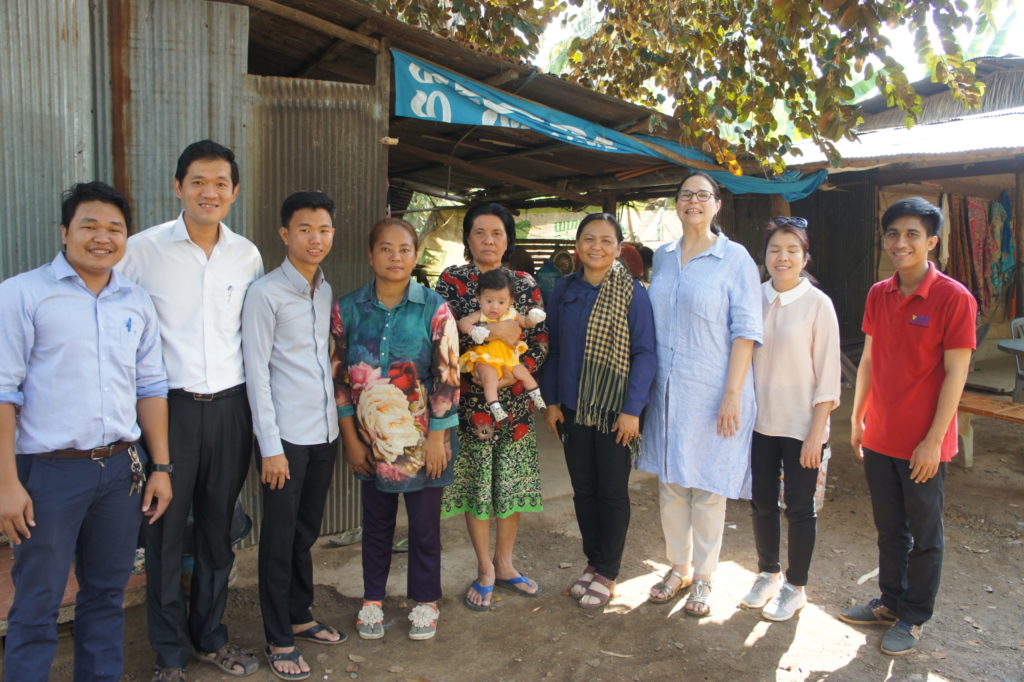
“A lot of women express to us they feel that someone is out there — that social workers are out there for them, because their lives are really isolated,” Thoa says. “When you go through extreme challenges, you feel isolated because you can’t get help for so long.”
Sao is no longer isolated. She is surrounded and supported by people who care about her — both in her community and across the world. Holt donors and social workers have lifted her up and empowered her to support her family. But Sao is the true hero of her story. She is now a prominent businesswoman — powerful beyond what she ever imagined.
When she met with our staff, she said, “My life was born again. I didn’t know what to do to earn a living and lost hope for life. The support from Holt has helped me and made a difference to my life. Now, I have a career to earn a living.”
Robin Munro | Managing Editor
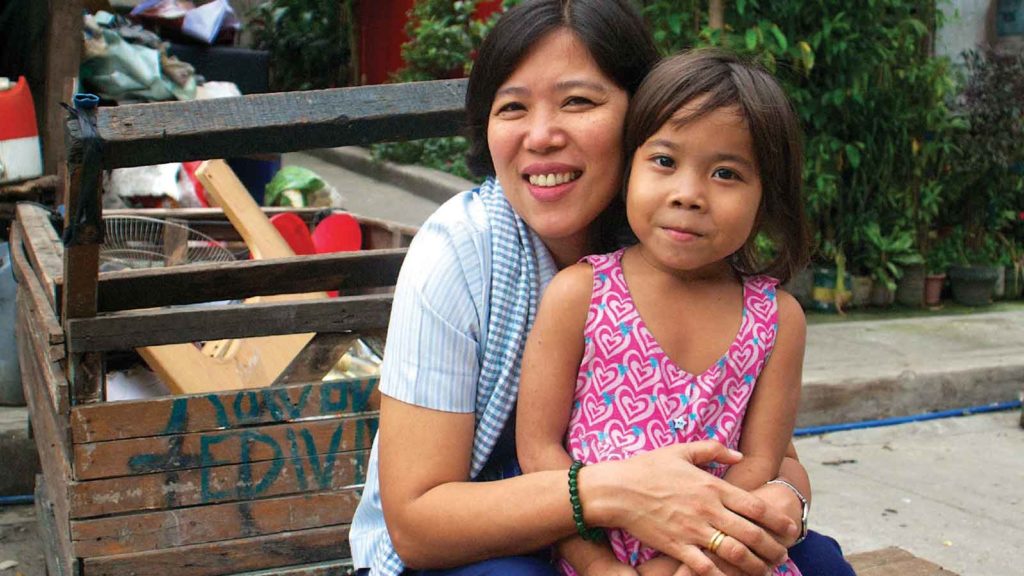
Empower a Single Mom
You can give a single mom the personalized help she needs to become independent and support her children. Whether you provide a safe home, nutrition training, baby items or education, empowering a mom will change her and her children’s lives forever.
